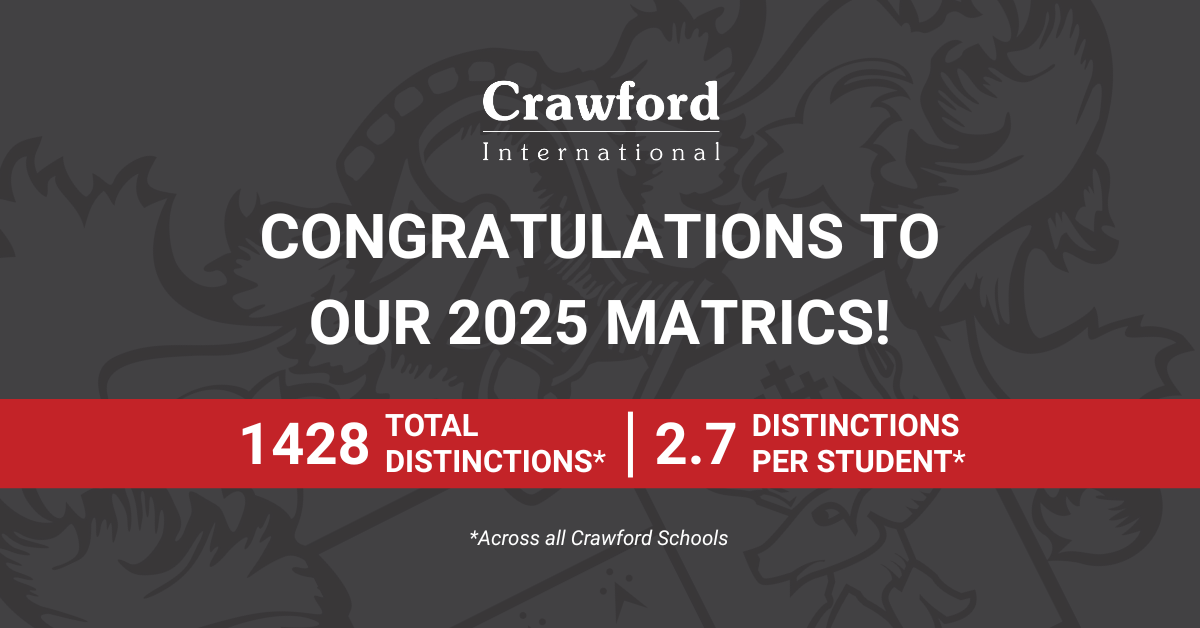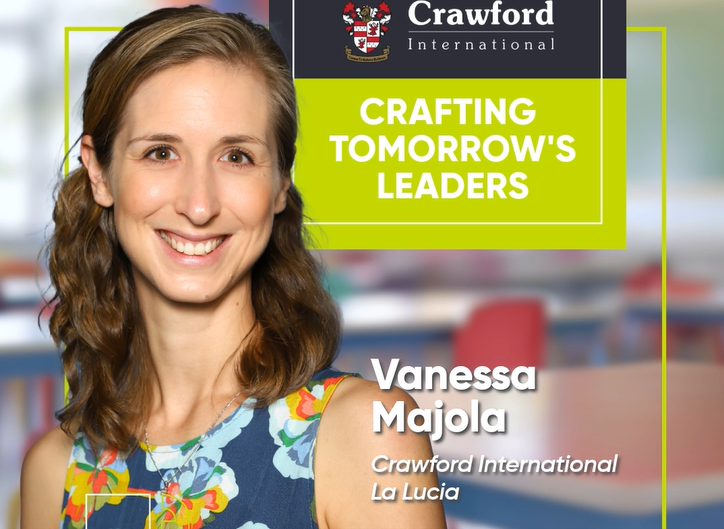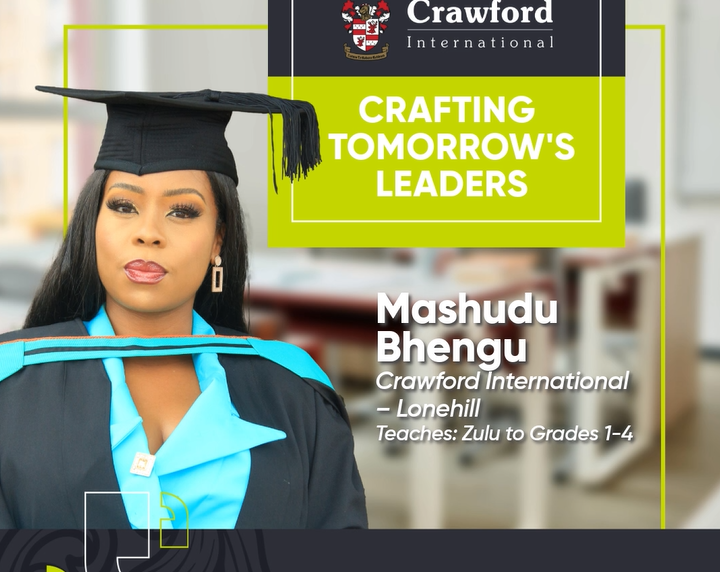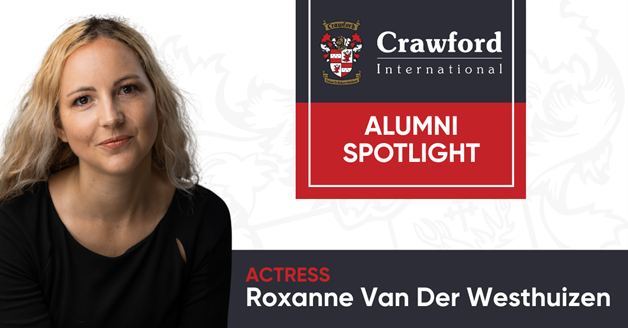Extramurals 4.0 - EA is a Sport!
ADvTECH Group • January 21, 2022
Extramurals 4.0
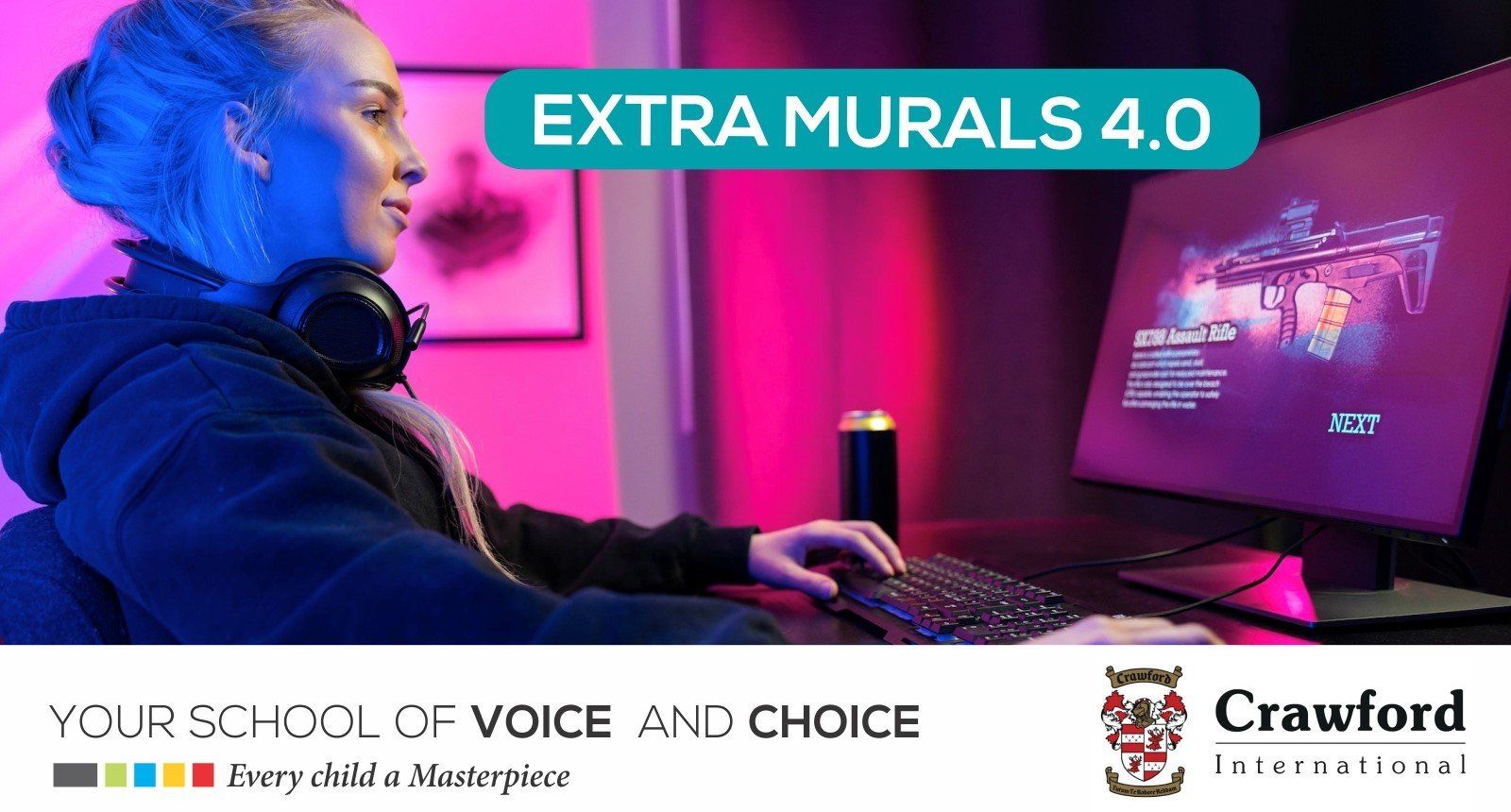
Today’s children are putting down the bats and balls and entering EA (Electronic Arts), AR (Augmented Reality) and other activities in the 4IR (The 4th Industrial Revolution). Confused? Don’t be. In this piece, we break down the extracurricular activities we didn’t have growing up – but that your kids do, and Crawford International is leading the way with Future Focused Education and extramurals.
The world has changed irrevocably and immeasurably over the last 20 years, so it only makes sense that extra-curricular activities catch up and offer children additional learning and experience in skills that will be much needed in the future.
As a result, after-school activities in the 4IR see our children gaming in AR, building robots and more. Now, for those of us still stuck in the last millennium, 4IR refers to the Fourth Industrial Revolution, also known as Industry 4.0, meaning the digital age in which we are now living.
It’s not just technology that’s changing how our children spend their time after school. Life in a pandemic has had many rethinking our approach to traditional learning and activities, and there has been an increase in online or distanced options.
Plus, there’s a lot more choice afforded to today’s children. In this ever-evolving world, it’s safe to say we didn’t have the option of these super-fun extracurricular activities when we were growing up, but our children do. Here’s a breakdown of a few of the exciting options now available.

FIRST LEGO LEAUGUE
First Lego League introduces children of all ages to oodles of STEM exposure without them even knowing it! This is perfect, as skills in Science, Technology, Engineering, and Mathematics are the way of the future. Using a LEGO League set, children work in teams to complete a challenge based on a real-world problem through building and commanding their very own walking, talking robots.
The League has different age-appropriate levels, and each team requires four members and one coach. Teams meet once a week at the premises of their choice, and no special skills are needed. As they say, “This is the only sport where if you show up, you can play.”
What it teaches:
- Critical thinking
- Coding
- Robotics
- Teamwork
- Problem-solving
- Creativity
Age group:
FIRST Lego League Discover: 4 to 6 years
FIRST Lego League Explore: 6 to 10 years
FIRST Lego League Discover: 9 to 16 years
How to get started!
Go to firstsa.org and click on the First Lego League to find out more and register your team.
HIGHSCHOOL E-SPORTS LEAUGUE
Traditional sports heroes like Lionel Messi and Lewis Hamilton are making a way in the popularity stakes for their online gamer counterparts, like Lee “Faker” Sang-Hyeok. Competitive video games, called E-Sports, are taking the world by storm, with some international events drawing over a million viewers at one time. The High School E-Sports League also provides a space for competitive school E-Sports for high-schoolers in South Africa.
“The HSEL provides schools with ready-made fixtures against other schools from across the country, to make E-Sports as accessible as possible for schools, with the understanding that this is a volunteer organisation run by the teachers,” says Tyrone Green, chairman of the HSEL.
“We try to focus on team games rather than individual titles to combat the stigma that gaming or E-Sports is some activity that only loners take part in. The sense of camaraderie, not just with your teammates but with other schools, really makes E-Sports an incredible addition to any student’s school life. The HSEL and its partnership with Telkom VS Gaming also allow more competitive players to make their mark on the E-Sports scene.”
The League is for schools, but if you’re looking to join as an individual, you would need a teacher or staff member who can act as an intermediary (with the school's permission) to schedule matches and sort out other details. “We welcome all students and schools!” says Tyrone, adding that inclusivity is a driving factor of
the League. “Most of the games titles played do not require high-end computers or consoles (making it affordable), and girls and boys are on an equal footing.”
What it teaches:
- Communication
- Teamwork
- Commitment
- Problem-solving
- Confidence
Age group:
From 13 years onwards, but there is room for younger participants. Tyrone explains: “While we style ourselves the High School E-Sports League, junior schools can join as long as their students are taking part in age-appropriate titles. CS:GO, for instance, is rated 16, while League of Legends has an age restriction of 13. However, games like Rocket League is for everyone, which is great.”
How to get started!
Reach out to Tyrone Green by email (greet01@wbhs.co.za) for more information about the upcoming season and all other related information.

MONEYTIME
Financial literacy is another future-proof skill that can be learnt in fun, engaging ways. The MoneyTime Programme focuses on everything we wish we knew about personal finance for your kids. Through online, self-taught lessons and a cute game, children learn about saving and budgeting, employment and job applications, cyber security, consumer rights, insurance, and more. Plus, it can all be done in the comfort of your home.
What it teaches:
- Financial literacy
- Independence
- Problem-solving
- Critical thinking
Age group:
From 10 to 14 years.
How to get started!
Visit moneytimekids.co.za for more information.
Click here to read our financial parenting advice blog.
DIGITANK
If you’re looking for the motherboard of STEM skills that extend beyond coding and robotics, digitank has just about everything. The online classes offer a full computer science curriculum for kids aged 6 to 18, and you can choose between access to four group lessons a month or four private lessons a month. Courses available include Python and Java programming, app development, web design, game design and more. Students also get to connect with global peers when competing in Hackathons and open challenges.
Age group
From 6 to 18 years
How to get started!
Go to digitank.co.za to learn more and to enrol.
While these activities are a far cry from what we were used to, they do offer amazing new opportunities for learning and fun – and a chance for us parents to show support in new and wonderful ways, too.
Read more about how Crawford International private schools implement technology in the classroom.
